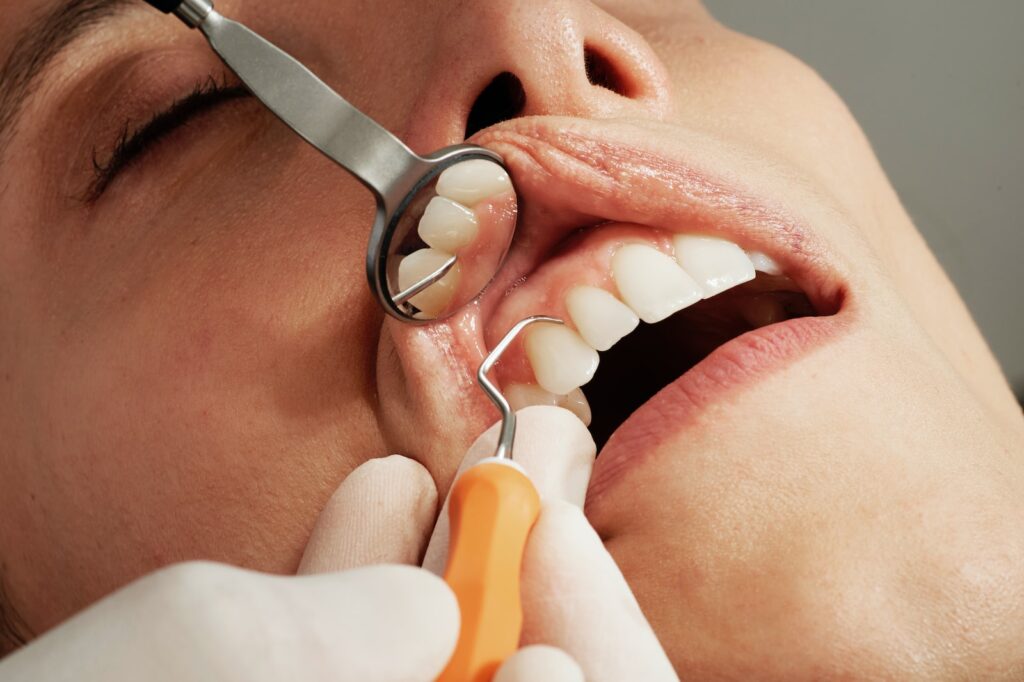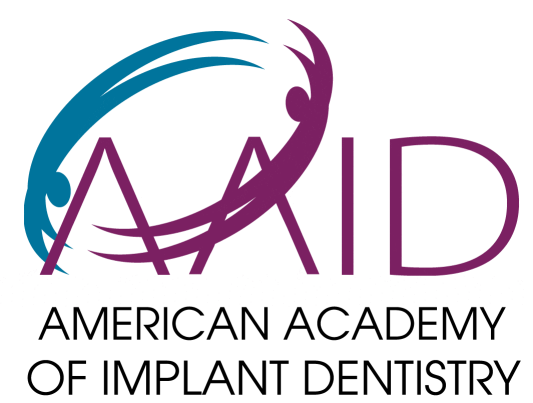Periodontist services in Leesburg, Ashburn, Sterling, and Lansdowne, Virginia are expertly provided by Dr. Wael Elosta and the Lansdowne Family Dental team, specializing in comprehensive gum disease treatment and prevention. Our experienced periodontist offers advanced periodontal therapy including scaling and root planing, gum disease treatment, and preventive care to restore and maintain healthy gums, which serve as the essential foundation for strong teeth and beautiful smiles.
Finding the right periodontist is crucial for maintaining optimal oral health throughout Northern Virginia. Healthy gums are the foundation of a beautiful smile and are essential for maintaining strong teeth over a lifetime. Our Lansdowne Family Dental team is committed to delivering exceptional periodontal care and ensuring the comprehensive oral health of patients across our service areas.
Our periodontal treatment services include:
- Advanced gum disease therapy to halt progression and restore gum health
- Scaling and root planing for deep cleaning below the gum line
- Preventive periodontal care to maintain healthy gums long-term
- Comprehensive evaluation to detect early signs of gum disease
At Lansdowne Family Dental, we understand that periodontal treatment is one of the most important services for maintaining overall oral health and preventing tooth loss in our Virginia communities.

The Importance of Periodontal Treatment
Periodontal disease, commonly known as gum disease, is a prevalent condition that affects the gums and supporting structures of the teeth. It is caused by plaque and bacteria buildup, leading to inflammation and infection. If left untreated, periodontal disease can result in tooth loss and other serious oral health issues. That’s why periodontal treatment plays a vital role in maintaining optimal oral health.
👉Book Your Periodontal Treatment Here!
Signs and Symptoms of Periodontal Disease
It’s essential to recognize the signs and symptoms of periodontal disease to seek timely treatment. Some common indications include:
- Red, swollen, or tender gums.
- Bleeding gums during brushing or flossing.
- Persistent bad breath.
- Receding gums.
- Loose or shifting teeth.
- Changes in the bite.
Our Periodontal Treatment
Periodontal treatment involves a variety of procedures aimed at preventing, diagnosing, and treating periodontal disease. At Lansdowne Family Dental, we offer the following services as part of our comprehensive periodontal treatment:
1. Scaling and Root Planing
One of the primary procedures in periodontal treatment is scaling and root planing. It is a non-surgical deep cleaning technique that involves removing plaque and tartar from the tooth surfaces and smoothing the roots to promote gum tissue reattachment.
2. Periodontal Maintenance
After undergoing periodontal treatment, it is crucial to schedule regular periodontal maintenance visits. These visits involve thorough examinations, teeth cleanings, and monitoring of the health of your gums to prevent the recurrence of periodontal disease.
3. Gum Grafting
In advanced cases of periodontal disease where gum recession has occurred, gum grafting may be necessary. This procedure involves taking tissue from another area of your mouth and grafting it onto the affected gum area to restore proper gum tissue levels.
4. Dental Implants
Severe cases of periodontal disease can result in tooth loss. Dental implants provide a long-term solution for replacing missing teeth. They are surgically placed into the jawbone, providing a stable foundation for dental restorations.
5. Bone Grafting
When periodontal disease has caused significant bone loss, a bone grafting procedure may be performed. This involves transplanting bone tissue to stimulate new bone growth and provide support for dental implants or other restorations.
Frequently Asked Questions
Q1: What causes periodontal disease?
Periodontal disease is primarily caused by poor oral hygiene, allowing plaque and bacteria to accumulate on the teeth and gums. Other factors such as smoking, hormonal changes, genetics, and certain medications can also contribute to the development of periodontal disease.
Q2: Is periodontal treatment painful?
During periodontal treatment, your comfort is our priority. Local anesthesia is administered to numb the are treated ensuring a painless experience. After the procedure, you may experience some mild discomfort, which can be managed with over-the-counter pain relievers.
Q3: How long does the recovery process take after periodontal treatment?
The recovery time after periodontal treatment varies depending on the severity of the condition and the specific procedure performed. In most cases, patients can resume their normal activities within a day or two. However, it is important to follow the post-treatment instructions provided by your dentist for optimal healing.
Q4: Can periodontal disease be prevented?
Yes, periodontal disease can be prevented with good oral hygiene practices. This includes brushing twice a day, flossing daily, using an antimicrobial mouthwash, and visiting your dentist regularly for check-ups and cleanings.
Q5: Are there any risks associated with periodontal treatment?
Periodontal treatment is generally safe and effective. However, as with any dental procedure, there may be certain risks involved. These will be discussed with you by your dentist before any treatment is undertaken.
Q6: How often should I schedule periodontal maintenance visits?
After undergoing periodontal treatment, it is recommended to schedule periodontal maintenance visits every three to four months. These visits allow your dentist to closely monitor your oral health and address any issues promptly.
Conclusion
In conclusion, periodontal treatment is a vital aspect of maintaining optimal oral health. At Lansdowne Family Dental, we prioritize your well-being and offer comprehensive periodontal services to ensure healthy gums and teeth. From scaling and root planning to gum grafting and dental implants, our skilled team is dedicated to providing you with personalized care and effective treatments. Don’t let periodontal disease compromise your oral health. Contact Lansdowne Family Dental today and schedule an appointment for a thorough evaluation and personalized periodontal treatment.






